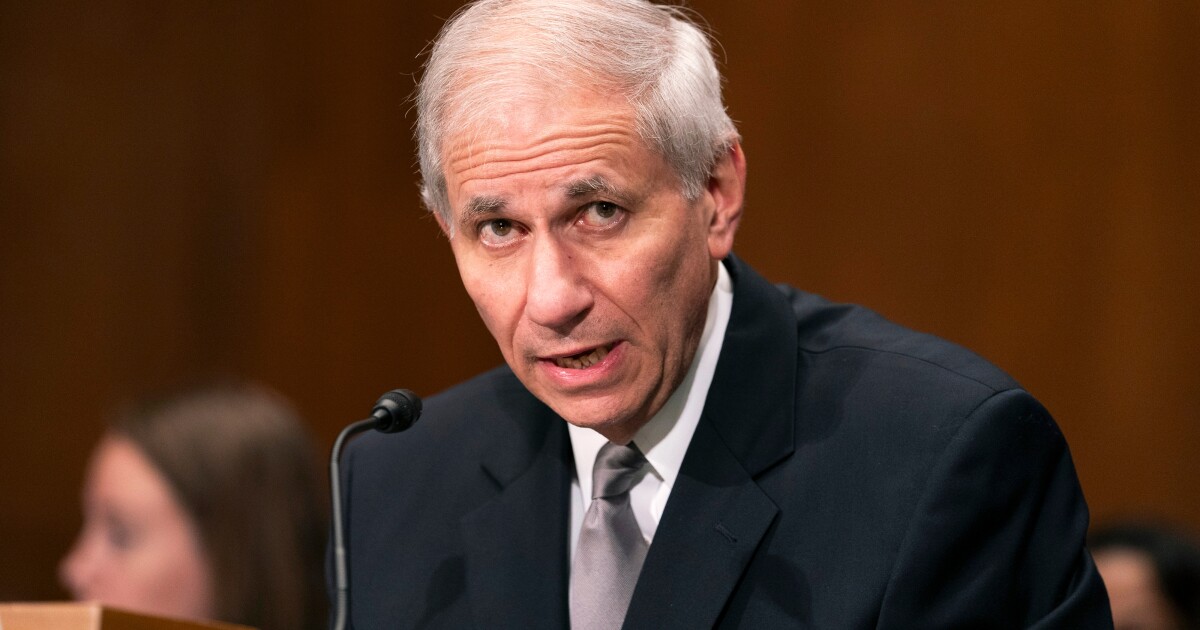
Federal Deposit Insurance Corp. Chairman Martin Gruenberg — the agency's longest serving board member — said Tuesday that he would retire from the agency in January.
In an email sent to staff, Gruenberg said he had given President Biden notice that he plans to retire as chairman and member of the board of directors of the FDIC effective Jan. 19, the day before President-elect Donald Trump is sworn in.
"It has been the greatest honor of my career to serve at the FDIC. I have especially valued the privilege of working with the dedicated public servants who carry out the critically important mission of this agency," he wrote. "Over the coming weeks I hope to have the opportunity to speak with many of you and thank you personally for your service. But for now allow me to extend my gratitude to all of you."
Gruenberg's long tenure at the agency became the focus of Congressional Republicans in recent months after numerous allegations of sexual harassment and racial discrimination at the FDIC emerged
Raised in the Bronx, Gruenberg was the child of Holocaust survivors from Poland. He received his undergraduate degree at Princeton University's School of Public and International Affairs and a J.D. from Case Western Reserve Law School. Gruenberg began his career in the late 1970s working as the Bronx Congressional aide for Jonathan Bingham, D-N.Y., where he supported housing and development projects in the Bronx.
Gruenberg served as a board member of the FDIC since 2005, having been nominated by President Bush and confirmed to the position of vice chairman by the Senate.
During his public service, Gruenberg built a reputation as a steady and principled leader in financial regulation who sought to protect the stability of the banking system while addressing the intersection of financial regulation and community impact.
Gruenberg joined the FDIC board after serving in the financial services and regulatory areas in Congress. Gruenberg served as staff director of the Banking Committee's Subcommittee on International Finance and Monetary Policy from 1987 to 1992. He was also senior counsel to Maryland Democratic Sen. Paul S. Sarbanes on the staff of the Senate Banking Committee from 1993 to 2005.
Gruenberg led the FDIC's response to the 2023 failures of Silicon Valley Bank and Signature Bank, the largest banking calamity since the 2008 financial crisis. Under his leadership, the agency proposed
Gruenberg is a major proponent of the Community Reinvestment Act. In October 2023, his agency — along with the Federal Reserve and the Office of the Comptroller of the Currency — finalized the



